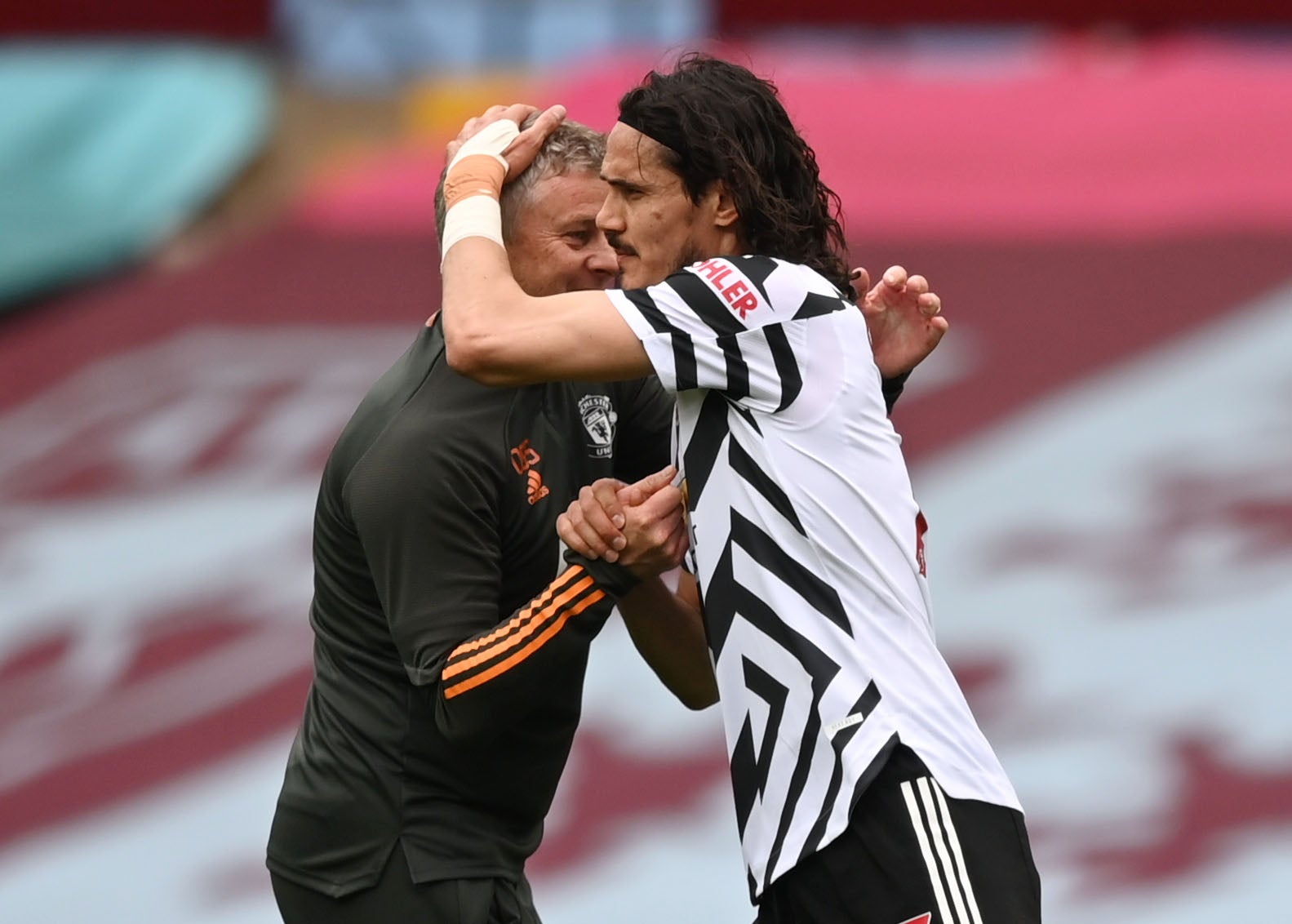Manchester United are comeback kings moulded in manager’s image – but must learn how to win easy
Ole Gunnar Solskjaer’s unashamedly romantic view of United has been backed up by results, but their first half struggles still need addressing

Manchester United’s last title was secured against Aston Villa. Their feats in their latest win over favourite opponents included simply extending Manchester City’s wait to become champions. If that indicates how times have changed since Robin van Persie’s superlative volley in 2013 sealed Sir Alex Ferguson’s 13th and final Premier League crown, another of the great Scot’s former forwards has the sort of historic achievement that is at least echoing their past.
Ole Gunnar Solskjaer can seem a one-man nostalgia project, harking back to a golden age at Old Trafford in a bid to recreate it. If much of United’s identity was lost or confused under David Moyes, Louis van Gaal and Jose Mourinho, Solskjaer has revived one of the more famous parts of it. The man who sealed their most famous comeback has overseen the most.
United’s 3-1 triumph at Villa Park made them the first team to win 10 Premier League games in a season after trailing. They are accustomed to bittersweet occasions, but to the eventual sense of satisfaction. “We have been in this situation so many times,” said Luke Shaw. The vanquished are wearily familiar with fightbacks; Aston Villa’s Dean Smith is not alone in complaining about the award of a penalty Bruno Fernandes scored.
But themes recur with remarkable regularity. Paul Pogba and Marcus Rashford each played a part in a goal at Villa Park and are two of United’s main comeback kings. The other three, Fernandes, Mason Greenwood and Edinson Cavani, all struck. They have six, five and six goals respectively in those comeback wins. Substitutes often score; indeed Cavani often scores as a substitute, as he did at Villa. He has refined his Solskjaer impression, ghosting in when opponents are tired. The Uruguayan’s arrival has given United the extra forward option that means someone potent is always held in reserve. “Sometimes the player you leave out can come on the pitch and win you a final,” said Solskjaer, speaking from personal experience.
His unashamedly romantic view of United, as the adventurers who never give up, can feel justified by the results. Comebacks feeling the kind of self-fulfilling prophecy they were in the Ferguson days; opponents fear them and then they happen. “I believe in the boys and I think they believe in themselves,” he said, attributing comebacks to their sheer Unitedness more than tactical input. “You hear the sprit, the camaraderie, they back each other.” His half-time message? “It was just about trusting ourselves again because we’ve done that so many times.”
In particular, they can score in quick bursts: two in five minutes against Villa, two in eight at both Everton and Sheffield United, two in four at West Ham. United can acquire a momentum, especially against the sort of sides who might be thinking of how to hang on to leads. Those 10 wins have come against Brighton (twice) plus Newcastle, Everton, West Ham, Southampton, Sheffield United, Fulham, Tottenham and now Villa, all on the road. The alternative interpretation is to criticise United for going behind to each as well as West Brom – they recovered to draw 1-1 – and at home to the Blades, their lone and improbable defeat in 28 league games.
It illustrated that going behind is not a failsafe formula. United top the second-half table but are a lowly 12th in the first-half standings. Their season has been one long comeback, from losing 6-1 to Tottenham and three of their first five games, but with a better start, their powers of recovery might not have been so necessary.
It is nonetheless remarkable that 45 percent of their points have come when they have trailed. A table where United had never come from behind this season would see them level on points with Newcastle, on 39. Still stranger, one where they had never scored first would still put them with 31 points, the number they have secured from losing positions still enough to keep them out of the bottom three. But the oddity of it may mean their new record is safe for years. Next season’s task could be to find a duller way to win.
Join our commenting forum
Join thought-provoking conversations, follow other Independent readers and see their replies
Comments
Bookmark popover
Removed from bookmarks